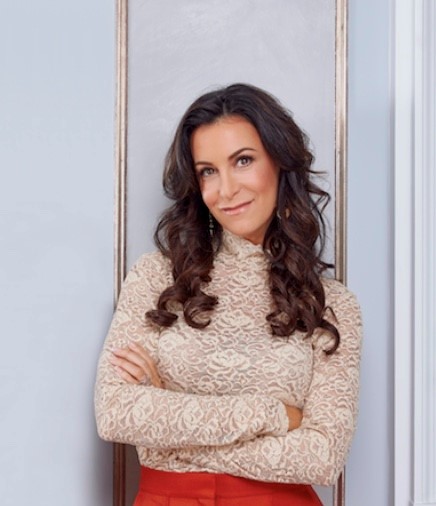A third of women want to change their lives after Covid-19. Are you one of them? We asked Jacqueline Hurst, a leading life coach, to tell us how we can bring about change.
The coronavirus pandemic has turned people’s lives upside down, but it has also created a moment of reckoning. According to new research from innovative life insurer Vitality, the Covid-19 pandemic has forced almost two-thirds of women (65 per cent) to reassess what’s important in life with over 80 per cent admitting they are likely to take action to make a life change.
Most have been prompted by the realisation that ‘life is short’ and anything can happen to themselves or their family (61 per cent) while others said it had given them a new perspective on what is important (55 per cent).
Family time
Spending more time with family (33 per cent) topped most women’s priorities list after lockdown gave some a unique opportunity to connect with their loved ones at home, while others were forced to isolate away. Around 11 per cent stated that one of the biggest life lessons to come out of Covid-19 is a need to protect themselves and their family’s future with life insurance.
Certified hypnotherapist and life coach Jacqueline Hurst, who is working with Vitality in a bid to host the UK’s largest virtual life coaching workshop, believes unexpected events like the coronavirus pandemic often force people to take a step back and reconsider whether their life is going in the right direction and that people could benefit from more tools to actually make the long-term life changes they desire.
She says: ‘Most of the time we go about our lives unconsciously and don’t really pause to take stock of the big, important things in life until something unexpected happens. These past few months have been really challenging for people, but they have also forced many to take a step back from the day-to-day and really think about what they want in life.
‘It’s great to see that so many women want to make a positive change in their lives, but what still struck me is that almost a quarter feel less optimistic about achieving their goals over the long term and that women feel less optimistic than men about the future. With my clients, I find that women have specific barriers that can hold us back. We often feel we should put other’s needs before our own, especially when it comes to family or children and societal pressure. We worry a lot about what people think and research has also shown women are more likely to experience imposter syndrome in the workplace, which can knock confidence and prohibit our ability to achieve our career goals.
‘If you have any of these feelings or don’t know where to start, I believe there are a few simple steps you can follow to help make your goals a reality.’
Change your mindset
I’m a big believer in the power of optimism. If you think you can, you will, and if you think you can’t, you won’t. If you want to successfully make a change, you need to catch any negative thoughts and reframe them into a positive. For example, instead of thinking ‘this is going to be so hard’, change your mindset to think ‘I can do anything one day at a time’.
Make a pledge
A good place to start is to write down the uplifting and motivational thoughts that will help you to achieve your goals and put it somewhere visible so you are always reminded of it – something like ‘I believe in myself to reach my goal of setting up my own business, I have the tools and the capability to do it’. Then tell someone what you are looking to change about your life – that way you’re accountable and this will help you to make it happen. Search #LifePledge on Instagram to join others who are pledging to make positive changes in their lives.
Visualise your success
Take a moment to shut your eyes and really visualise how you are going to feel once you have completed this positive change. Imagine the happiness and confidence you are going to have once you have achieved something amazing. Doing this once a day will really help you. Visualising yourself at the end goal is a very powerful tool to help you get there.
Accept failure and learn from it
Failure is not the opposite of success, it’s part of success. Remember we’re all human and you have to fail in order to learn, improve and succeed. If you go to criticise yourself ask whether you would say that to someone you love or to a child. If not, then it’s not ok to say it to yourself. We are often our harshest critics. Most importantly, don’t give up take things one day, or even one hour, at a time. Failing can help you win in the end.
Don’t catastrophise
The pandemic has caused a lot of uncertainty and many are worried about the future and how they can protect themselves and their loved ones. But having an emotional reaction to negative things that haven’t even happened yet is not going to help you feel better and can hold you back from making a change.
You are in control of your thinking and it is therefore really important to find different thoughts that feel better. And although you can’t control the future, you can take steps to alleviate your concerns, like taking up a Life Insurance policy to protect what matters most, like your and your family’s health, savings and home.
More information

Jacqueline Hurst
Jacqueline has trained extensively in a number of different techniques from Advanced Structured Hypnotherapy, NLP and CBT (essentially, methods of changing thought processes to eliminate negative behaviour) to life coaching, weight coaching and health coaching. You can find more information about here on her website. For more information about Vitality, visit the Vitality website.







